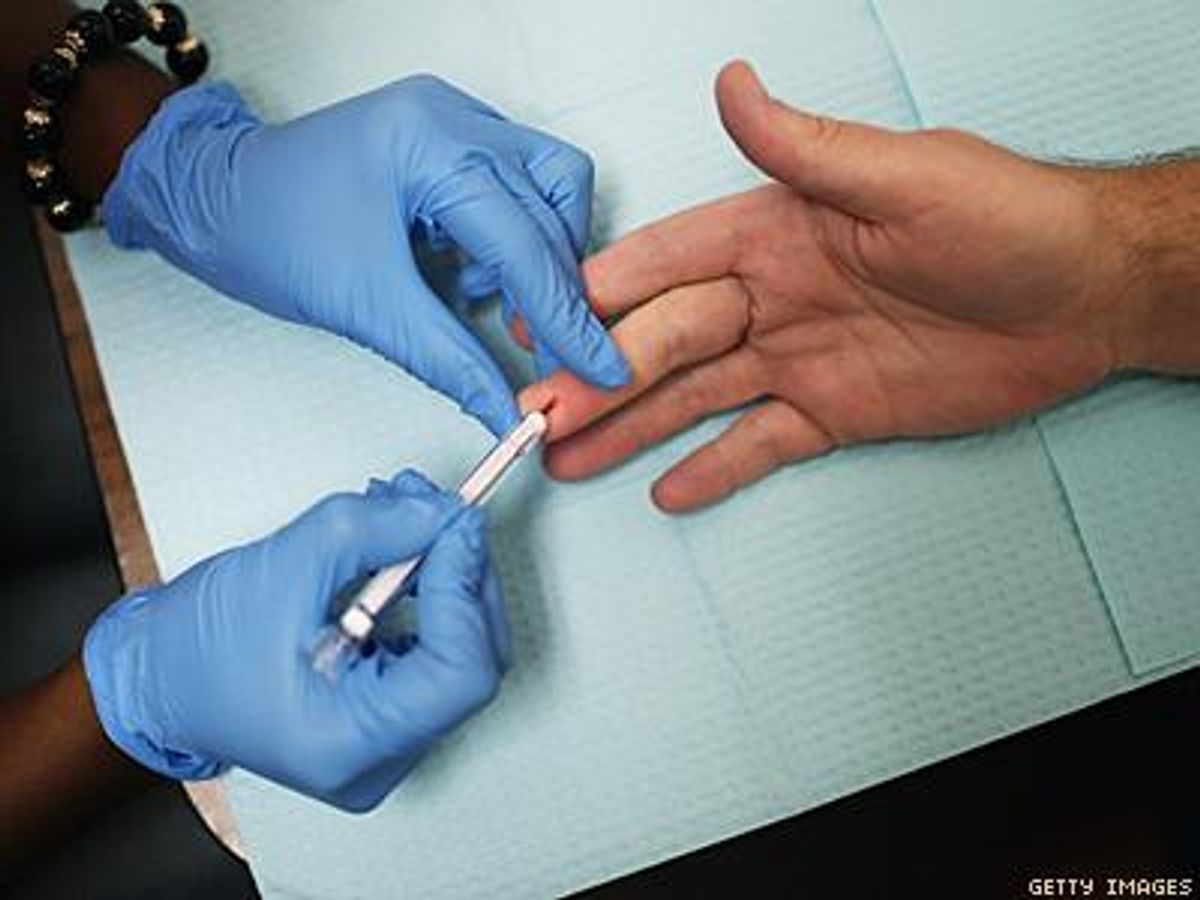Today marks the 19th Annual National HIV Testing Day, and the theme this year is “Take the Test and Take Control.”
Since the mid 1990s, the number of people who are diagnosed with HIV each year has remained relatively stable at 50,000 per year, but according to the Centers for Disease Control and Prevention, 1.1 million Americans are currently living with HIV, and nearly one fifth of them do not know they’re infected. Certain groups, including African-Americans, Latinos, and gay and bisexual men of all races, continue to be disproportionately affected.
“Every time someone gets tested for HIV, we are one step closer to ending the AIDS epidemic.” said Jonathan Mermin, director of CDC’s Division of HIV/AIDS Prevention. “Learning your HIV status opens the door to powerful HIV prevention and treatment options that could save your life or the life of someone you love.”
To express the importance of getting tested, organizations such as GLAAD and Gay Men's Health Crisis are partnering with Walgreens for the #TestMe campaign to provide free HIV testing on today through Saturday in 175 stores in 54 cities across 22 states, including Miami, Houston, Chicago, Philadelphia, and New York. Testing will be from 3 p.m. to 7p.m. today and Friday, and from 9 a.m. to 2 p.m. Saturday. A complete list of locations can be found here.
Every Walgreens location will be using the OraQuick ADVANCE Rapid HIV-1/2 Antibody Test, which detects antibodies for HIV-1 and HIV-2 in 20 minutes using a simple oral swab or finger stick.
Organizers are encouraging testers to share their experience by posting, blogging, or tweeting photos and stories and tagging them with the hashtag #TestMe.
According to a CDC fact sheet, between 2008 and 2010, gay and bisexual men between the ages of 13 and 24 had a 22% increase in new infections — and young black men in this group now account for more new HIV infections than any other subgroup. However, there has been a decrease of 21% in new HIV infections among African-American women.
Currently, nearly three out of four people living with HIV in the U.S. do not successfully navigate the appropriate stages of care, which are testing and diagnosis; linking to care; remaining in care; receiving antiretroviral drugs; and achieving viral suppression by using treatment to keep HIV at a level that helps them stay healthy and reduces the risk of transmitting the virus to others.
In recognition of National HIV Testing Day, President Obama released a statement saying that early detection and treatment for HIV saves lives, and yet over half of adults in the United States have never been tested. This past April, the United States Preventative Services Task Force recommended that everyone between the ages of 15 and 65 get screened for HIV as part of their routine health care, which means that under the Affordable Care Act, new health care plans will be required to cover HIV testing without any out-of-pocket costs.








































































